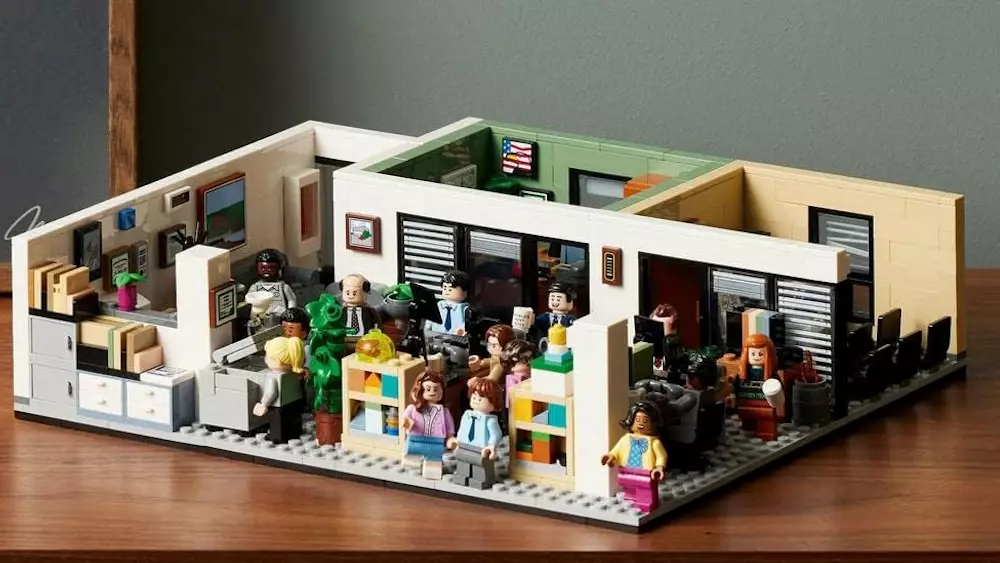As the landscape of television continues to evolve, the announcement of Peacock’s new series, The Paper, as a follow-up to the beloved satire, The Office, has stirred substantial excitement among fans. Set in Toledo, Ohio, this audacious endeavor aims to recapture the essence of workplace comedy that made its predecessor a cultural phenomenon. The return of this format invites a thorough examination of how legacy series can provide fertile ground for new narratives while simultaneously appealing to long-standing fans.
One can almost feel the familiar tones of deadpan humor and cringe-worthy moments echoing through the hallways of the Toledo-based fictional company. The anticipation extends beyond mere nostalgia; it presents a platform for fresh storytelling that will either pay tribute to its roots or attempt to forge its own path. Can The Paper successfully oscillate between homage and innovation, or will it falter under the weight of its predecessor’s towering legacy?
Collectible Culture: The Office Lego Set
The release of The Paper coincides beautifully with a surge in interest in memorabilia connected to The Office, particularly a delightful Lego set that depicts the eclectic Dunder Mifflin Scranton branch. Legos have transcended their toy status to become prized collectibles, representing a tangible connection to cherished pop culture icons. The 1,164-piece Lego Ideas: The Office set, featuring 15 beloved minifigures, offers not just a building experience but also a vivid reconstruction of unforgettable moments from the series.
However, it’s crucial to examine the ramifications of limited availability alongside the $120 price tag, especially with rumors of its retirement following the end of 2024. The mechanics of consumer engagement become evident when one observes the distinctions among different retailers. With many major outlets out of stock, Walmart emerges as a valuable resource for dedicated fans looking to snag this kit before it vanishes indefinitely. The slight price difference between Walmart and Amazon, where resellers have hiked the price to $140, raises questions about the ethics of resale in the age of nostalgia. Should fans prioritize affordability, or is the allure of ownership outweighing the price gap?
A Glimpse into the Set’s Adornments
The Lego set isn’t just a static display; it’s a love letter to the series, crammed with intricate details and interactive accessories that allow fans to recreate iconic moments. From Kevin’s legendary chili spill to Dwight’s infamous stash of weapons, the set mirrors the absurdity and charm that fans have come to expect. One particularly inventive detail is the inclusion of Michael Scott’s office as a removable component—an ingenious representation of the chaotic brilliance of Steve Carell’s character. This versatility allows for creative play that adds layers of engagement beyond mere display.
The minifigures, which range from pampered Pam to conscientious Toby, go beyond simple representation—they embody the personalities, quirks, and relationships that resonated deeply with audiences. Truly, the attention to detail in the accessories, such as Jim’s notorious gelatin prank, provides a visually rich tableau that will appeal to both seasoned fans and newer audiences discovering The Office’s charm.
The Cultural Impact of Legacy Series and Merchandise
The dual release of The Paper and the associated collectible set underscores a larger trend we’re witnessing in the entertainment industry: the blending of new projects with the nostalgia of established franchises. It’s essential to reflect on what this says about our consumption of media in an age of rapid changes. As streaming services push for content that generates buzz, projects like these harness not only existing fan bases but also create new avenues for engagement through tangible merchandise.
However, this raises important questions about authenticity. Will The Paper offer a genuine continuation of The Office’s humor, or will it simply mine nostalgia for easy laughs? Similarly, the frenzy around the Lego set highlights a potentially troubling trend toward commodification—does this diminish the artistry of the series that these products celebrate? The potential pitfalls of trading nostalgia for profit in a monetized landscape are things that both creators and consumers must navigate carefully.
As we await the premiere of The Paper, the anticipation surrounding both the series and its accompanying collectibles depicts a complex landscape filled with promise and caution, echoing the very nuances that made The Office endure in the hearts of so many.

